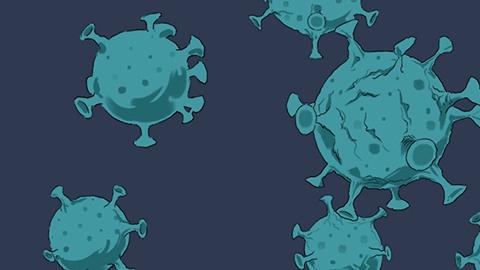What are the causes of cancer?
Generally, the occurrence of cancer may be caused by factors such as aging, genetic predisposition, chronic atrophic gastritis, chronic viral hepatitis B, and ulcerative colitis. It is recommended to seek timely medical consultation, identify the underlying cause, and undergo appropriate interventions under a physician's guidance. A detailed analysis is as follows:

1. Aging: With increasing age, the body's ability to divide and repair cells declines, the probability of gene mutations accumulates, and the risk of abnormal cell proliferation increases, which may lead to cancer. In daily life, maintaining regular作息 (作息 here likely means作息 habits or routines), avoiding staying up late, and engaging in moderate-intensity exercise 3–5 times per week, such as brisk walking or swimming, are recommended.
2. Genetic Factors: Certain cancers have a familial inheritance tendency. If there is a family history of cancer, individuals may carry related susceptibility genes and thus have a higher risk of developing cancer compared to the general population. Targeted screening should be conducted in advance—for example, regular breast ultrasound examinations for those with a family history of breast cancer, and regular colonoscopies for those with a family history of colorectal cancer. Additionally, high-risk behaviors such as smoking and excessive alcohol consumption should be avoided.
3. Chronic Atrophic Gastritis: Long-term damage and atrophy of the gastric mucosa disrupt the gastric environment, potentially leading to abnormal cell proliferation and increasing the risk of gastric cancer. This condition is often accompanied by symptoms such as upper abdominal pain and bloating. Patients may follow medical advice to take medications such as omeprazole enteric-coated capsules, hydrotalcite chewable tablets, and domperidone tablets to inhibit gastric acid secretion, protect the gastric mucosa, and promote gastric motility, thereby delaying disease progression.
4. Chronic Viral Hepatitis B: Long-term hepatitis B virus infection causes repeated liver cell damage and fibrosis, which may progress to cirrhosis or even liver cancer, accompanied by symptoms such as fatigue and discomfort in the liver area. Patients should follow medical advice to take medications such as entecavir tablets, tenofovir disoproxil fumarate tablets, and adefovir dipivoxil tablets to inhibit viral replication, protect liver function, and reduce the risk of cancer development.
5. Ulcerative Colitis: Long-term inflammation of the intestinal mucosa with repeated ulceration and healing may lead to abnormal mucosal proliferation, increasing the risk of colorectal cancer. Symptoms include diarrhea and mucopurulent bloody stools. Patients may follow medical advice to take medications such as mesalazine enteric-coated tablets, sulfasalazine enteric-coated tablets, and prednisolone tablets to control inflammatory responses.
In daily life, maintaining a balanced diet, reducing intake of pickled, smoked, and fried foods, consuming more fresh vegetables and fruits, quitting smoking, limiting alcohol consumption, and avoiding exposure to chemical carcinogens such as formaldehyde and benzene can help reduce the risk of cancer development.








